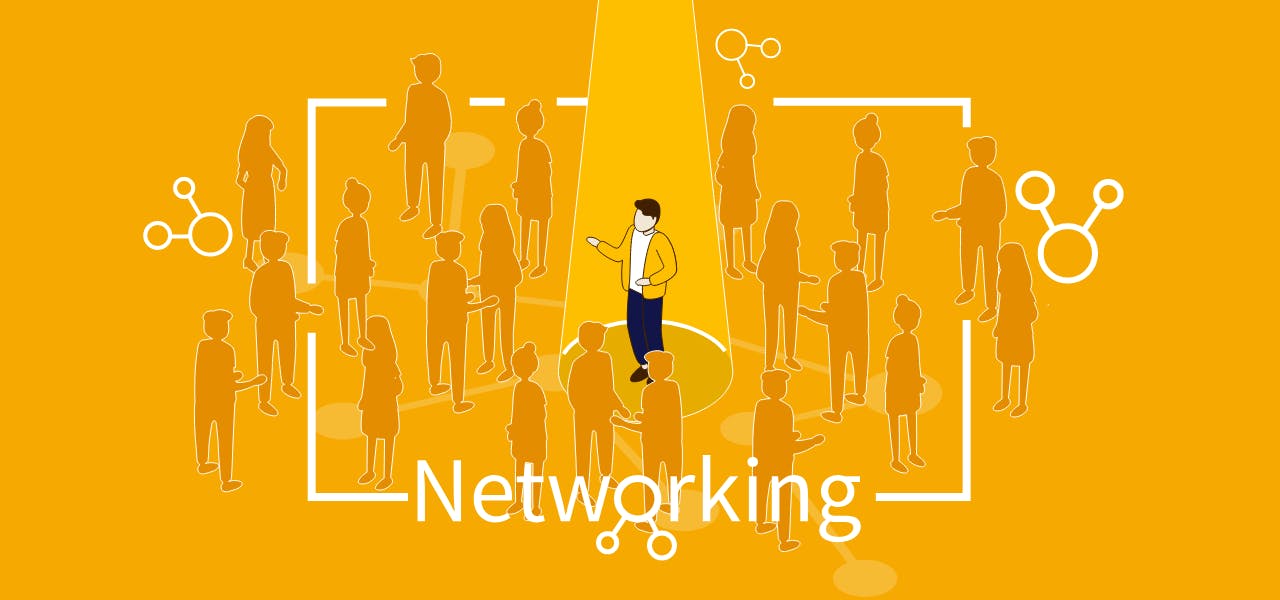In the busy professional world, networking is an essential piece to a successful career. But when you try to do this at a conference, you’re not the only one going around introducing yourself to dozens of potential contacts. The more potential a person has to be able to help you, the more people are likely to be trying to connect with them. You have to find a way to stand out and prove to them, in a very short time, why it would be important for them to remember you over everyone else.
Sometimes, this happens when you accidentally say just the right thing at the right time. For the most part, though, it requires planning ahead and strategic conversation and timing. You need to plant the seeds in your first meeting that will help you to foster that connection and build that relationship. These seeds need to spread roots that pitch themselves deep into the soil, not ones that go just below the surface.
Setting Your Goals
What, exactly, do you want to gain from the conference overall and your interactions specifically? Since you most likely aren’t going to have a lot of time to spend with each person, getting familiar with your goal on an automatic state is important.
In a conference, the tendency for most people is to spend two to three minutes (or less) in conversation with new people. They will feel them out, see if there’s a reason to continue the discussion, and then decide whether to further the relationship beyond that event. That means you have that very short time of about 180 seconds to get your point across and reach your goal.
A common example of a target in these short conversations would be to introduce yourself and why you should matter to the other person and how you would each benefit from a networking relationship. By the end of the conversation, your contact information would be exchanged and a follow-up communication tentatively set up. With these measurable objectives, it’s easy to know if your goal is met or not.
Pre-Conference Strategies
What you plan to say is important, but set yourself up for success in other ways, too. A few strategic pre-conference include:
● Choosing where you stay with intention. Even if you live nearby, it’s a smart idea to nab a room at the hotel where the conference is being held or the one that the presenters are recommending. A lot of networking goes on before and after the event, and you don’t want to miss out on those integral conversations. You have more of a chance at randomly meeting someone who could be important if you put yourself out there on the scene where everyone is going to be.
● Doing your research ahead. Check the list of presenters, speakers, and vendors and read up on their latest releases or news about the company. Add them on social media, share some of their posts, and plan what you want to ask them ahead of time so you don’t forget in the heat of the moment.
● Communicating within 24 hours before the conference. Don’t wait until right before the event starts to let those key people you hope to meet up with know you’re attending. Send out an email or a message about a day before and say something professional but engaging, like, “I look forward to hearing your speech at (specific event). I know you’ll likely have a large crowd of people wanting to connect with you, but I’d love to have a minute of your time to talk about (specific, but not detailed, topic). If the conversation flows well and there is still a line of people behind you, consider inviting them for coffee or a meal later.
How to Convey Value to Others at the Conference
Proving you have value to someone else is not the same thing as showing that your product or service does. The most incredible products go nowhere with disrespectful or arrogant salesmanship.
To get your foot in the door and build a relationship, try one of these tried-and-true methods:
● Forge a connection. Find out ahead of time (without seeming stalkerish) what you have in common with the person and then casually bring it up in conversation at the right point. Whether it’s hobbies, goals, interests, or people, it can all be used as an icebreaking connection.
● Find a shared history. Between your personal life and your professional career, there’s likely a similarity somewhere. Networking is the chance you have to learn where those experiences overlap and use them to benefit you both in mutual ways.
● Offer resources. Sharing relevant resources with others who could find them advantageous is a good way to prove yourself valuable. No one likes a taker. If you prove that you’re able to give as much as take, the relationship becomes symbiotic.
● Let them know of any growth opportunities you find. If you’re in the process of something new that pertains to the other person’s career, let them know about it. Or if there’s a job opening they were interested in, share it!
When you truly want to build a connection and not just find ways to name drop later, these tips will help you show your value to others.
